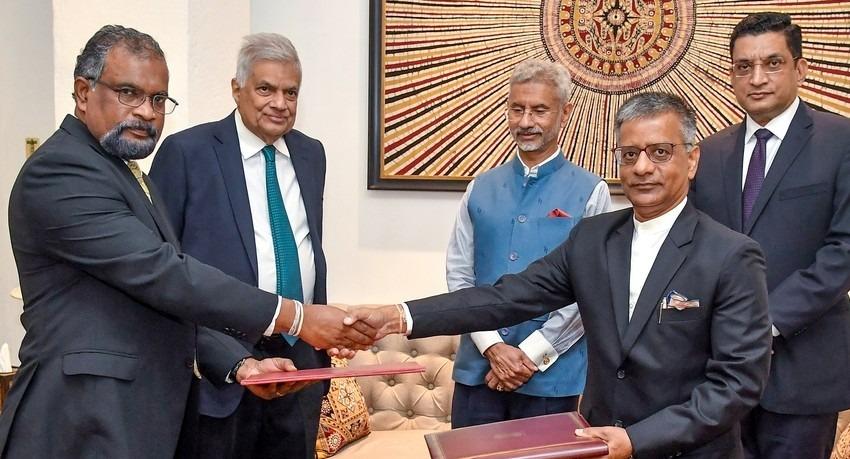By LP

A pilot project named PROTEUS introduced by the United States Naval Research Laboratory is the U.S. government’s latest addition in its arsenal of Maritime Domain Awareness (MDA) programs. Multiple government and private agencies are already engaged in the integrated system that facilitates heightened MDA capabilities[1]. The advent of PROTEUS reiterates the importance of multilateral efforts in combating maritime crime and strengthening freedom of navigation in the seas. This addition also emphasises the renewed need for improved MDA capabilities and effective multilateral efforts in the Indo-Pacific region considering the increasingly compressed geography in the region.
What is MDA?
As the nation state responsible for the introduction of the concept of MDA, the U.S. defines it as the ‘effective understanding of anything associated with the maritime domain that could impact the security, safety, economy or environment of a nation or region’[2]. A closer analysis of the concept and its application shows its capabilities and frameworks are overwhelmingly focused on civil maritime issues – the most emphasised of it all being the threat of piracy.
MDA is at its core, an intelligence function that seeks to enhance awareness about a specific domain. Due to its application in multiple eras in varying contexts, over the years, its operational capacity has been diverse. During the cold war era, it was largely revolving around naval intelligence and focused on several key threats. The modern applications evolved post 9/11; armed with the rise in developments in digital and information technologies the domain of MDA rose to heightened importance. Moreover, the introduction of the automatic identification system (AIS) for vessel tracking, which involves regular transmission of a ship’s position, heading and identification information has improved the ability of maritime domain actors to conduct safe operations.
However the evolving threats of the present have given rise to the need to expand the definition of MDA, enabling coverage of civil as well as high-profile military scenarios as well. A case in point is the overt focus on deploying MDA to combat piracy, illegal fishing, drug trafficking, and environmental threats but the lack of information sharing when in terms of military threats except in scenarios of mutual benefit.
MDA and the Indian ocean and Indo-Pacific
The Indo-Pacific region comprises a rapidly evolving, complex maritime enviornment, which has created growing challenges in civil as well as military operations. Geographically, the region’s features include a sub-continent and multiple islands. It is a region of growing economic significance and one of the most travelled bodies of water in the world.
Some of the key choke-points of maritime transportation such as the world’s oil transit points including the Strait of Malacca and Bab el-Mandeb lie in this region[3]. The regional geopolitical competition has also heightened, with India and China seeking to expand their influence. Key dividing lines have emerged and partnerships are forged and bolstered as evidenced through the joint naval drills held in partnership among Iran, Russia and China[4] and the formation of alliances such as the Quad and AUKUS[5].
As such the combination of compressed threat geography coupled with rising geopolitical rivalries have created complex and challenging contexts in the region, which calls for increased relevance and application of MDA within the region. Despite being a region with multiple seafaring nations, the domain is also rife with grave shortcomings of the MDA. Case in point is the MDA failure in the Indian ocean region that led to grave security collapses. i.e: Mumbai attacks
The answer: increased multilateralism
As waves of nationalism and populism dominated national politics around the globe, among the key words reigning international politics was ‘isolationism’. While Covid-19 pandemic swiftly disapproved its relevance, calls continue for withdrawn engagement in multilateralism.
However, the resolution for much of the global issues including maritime security lies in multilateralism and it has been proved through the multiple alliances forged worldwide that engages in information and intelligence sharing. Multiple multilateral forums focusing on seapower also exist within the Indian ocean region including the IORA. But their efficacy has been questionable. Regional competition and rivalries have created rifts, impacting the operations of these organisations, paving the way for external powers such as China to impose influence in the region.
Global and regional alliances have proven that engagements such as promotion of track 1.5 diplomacy to engage in confidence building and conflict prevention operations will aid in development of MDA within regions. An example is the South China sea issue where external domains such as the EU engages in regular dialogues with ASEAN, Vietnam and the Philippines, to defuse tensions and coordinate maritime presence to bolster multilateralism.
But India has now stepped out its game and has adopted a far more proactive approach in assisting and extending influence on its neighbours including Sri Lankam the Mauritius, Maldives and Myanmar. Engagements including capacity building, maritime exercises and increasing maritime expertise of littoral states in the wider Indian ocean and Asia, will strengthen MDA focus of the region. In extending into such sectors, India has increased multilateral maritime exercises and training, building and strengthening military-to-military relations with neighbouring nations such as Bangladesh, Indonesia, Sri Lanka, Malabar and Seychelles.
As China promoted its Belt and Road Initiative with the developments of regional ports including Gwadar, Hambanthota and Colombo ports, India has responded with Sagarmala aimed at improving its inland waterways and ports that includes development of Andaman and Nicobar islands[6] as well as increased presence in Madagascar, Seychelles and Mauritius. These actions speak volumes of India’s recognition of the need for a multilateral approach as opposed to ‘going it alone’.
The increased geopolitical competition in the region has already made it clear that MDA needs within the region will not be limited to the civilian domain as evidenced through the discovery of a drone in Indonesia. Like made in China, it is believed to have been used in espionage operations[7]. As such, there is a pressing need to strike a balance on both ends. But in practical terms there is likelihood of the separation between civil and military MDA failing. However, in order to meet 21st century maritime challenges in the Indo-Pacific, creating a distinction between the two is vital.
The need for a rules-based order in the Indo-Pacific is growing in significance and has posed grave challenges in the domain. The answer to the growing needs lie in increased multilateralism; in reinvigorating existing partnerships and alliances aimed at regional maritime security and in forging new partnerships as well. It is time for India, as a regional power, to involve and welcome global players in MDA programs in the region including an increased role for the EU.
(The writer is currently reading for Masters in International Relations and specializes in public diplomacy and communication).
***************
Disclaimer – Factum is a Sri Lanka based think-tank providing international relations analysis and public diplomacy consultancies in Sri Lanka and Asia. Visit – www.Factum.LK
[1] https://www.navy.mil/Press-Office/News-Stories/Article/2905233/proteus-provides-global-maritime-domain-awareness/utm_source/facebook/utm_medium/social/utm_content/100002848246355/utm_campaign/Fight/linkId/100000105526363/fbclid/IwAR194IC0QP-SHu6JwVWrf9AaJc065GiDV4EAvOzbyrNV8qqm5DeF6dk8e-A/
[2] https://www.polestarglobal.com/resources/an-introduction-to-maritime-domain-awareness-mda
[3] https://www.eia.gov/international/analysis/special-topics/World_Oil_Transit_Chokepoints
[4] https://www.voanews.com/a/iran-russia-and-china-begin-joint-naval-drill/6406437.html
[5] https://www.theguardian.com/politics/2021/sep/16/what-is-the-aukus-alliance-and-what-are-its-implications
[7] https://www.reuters.com/article/us-indonesia-security-idUSKBN29A11C


